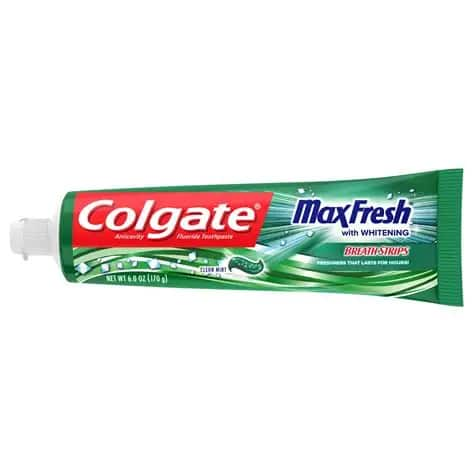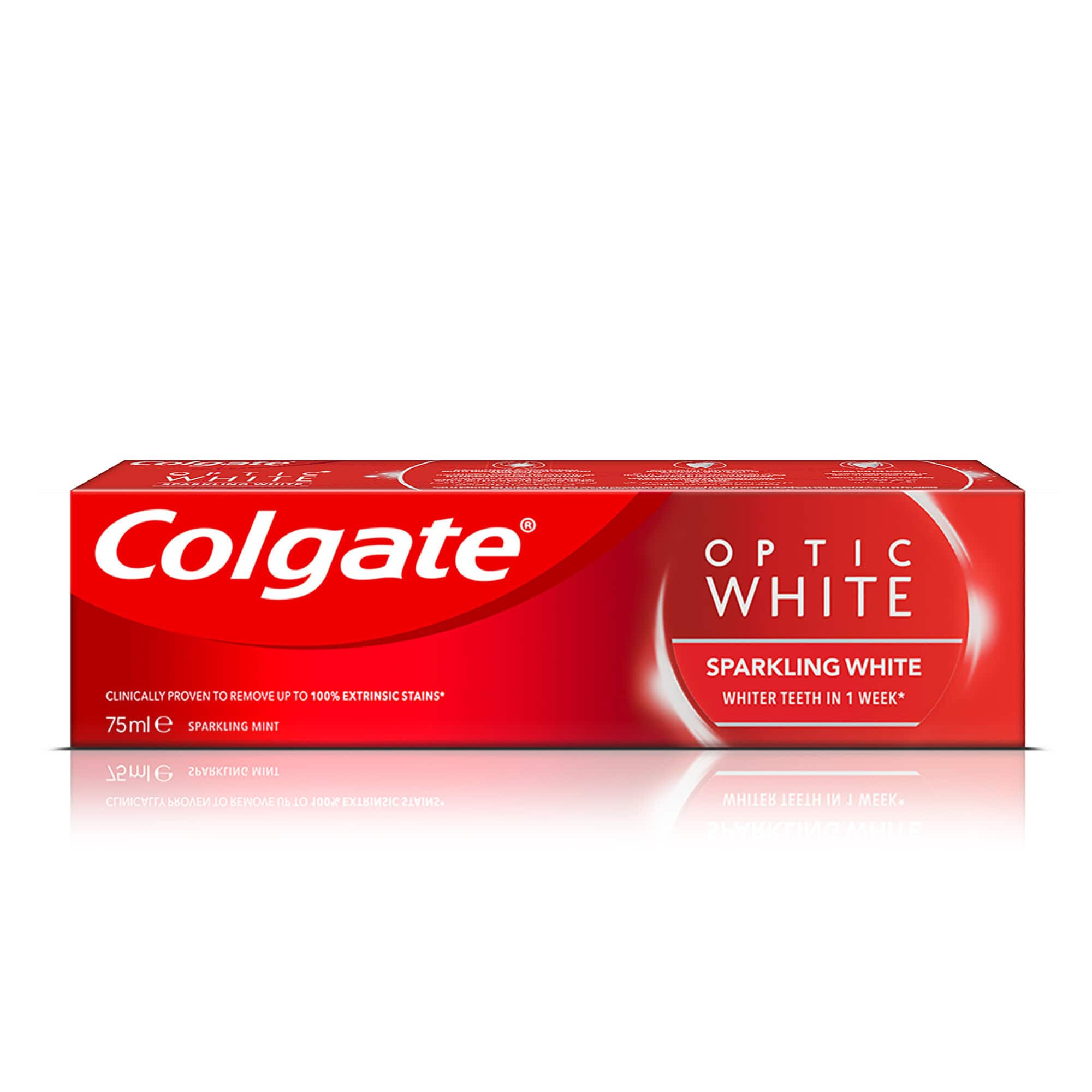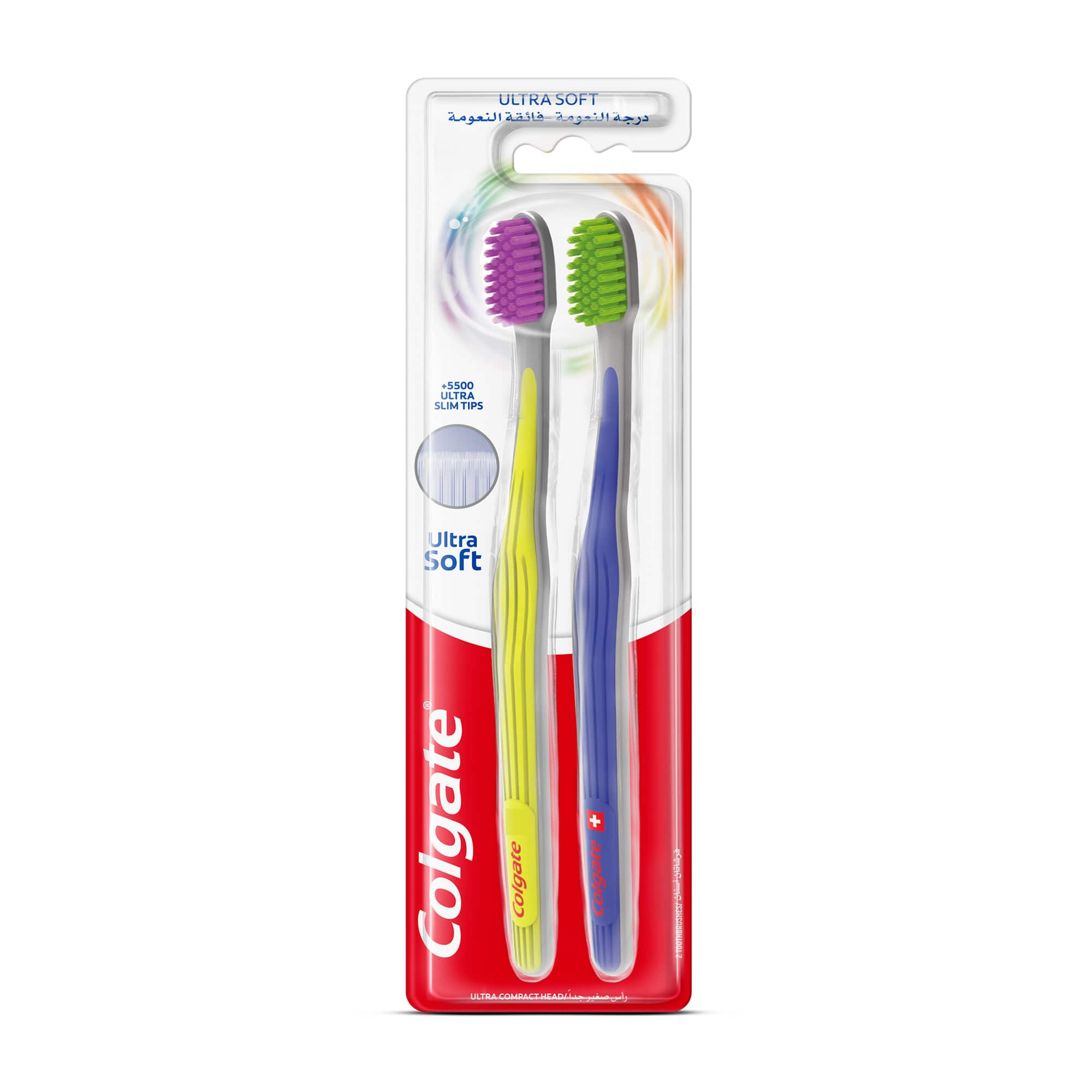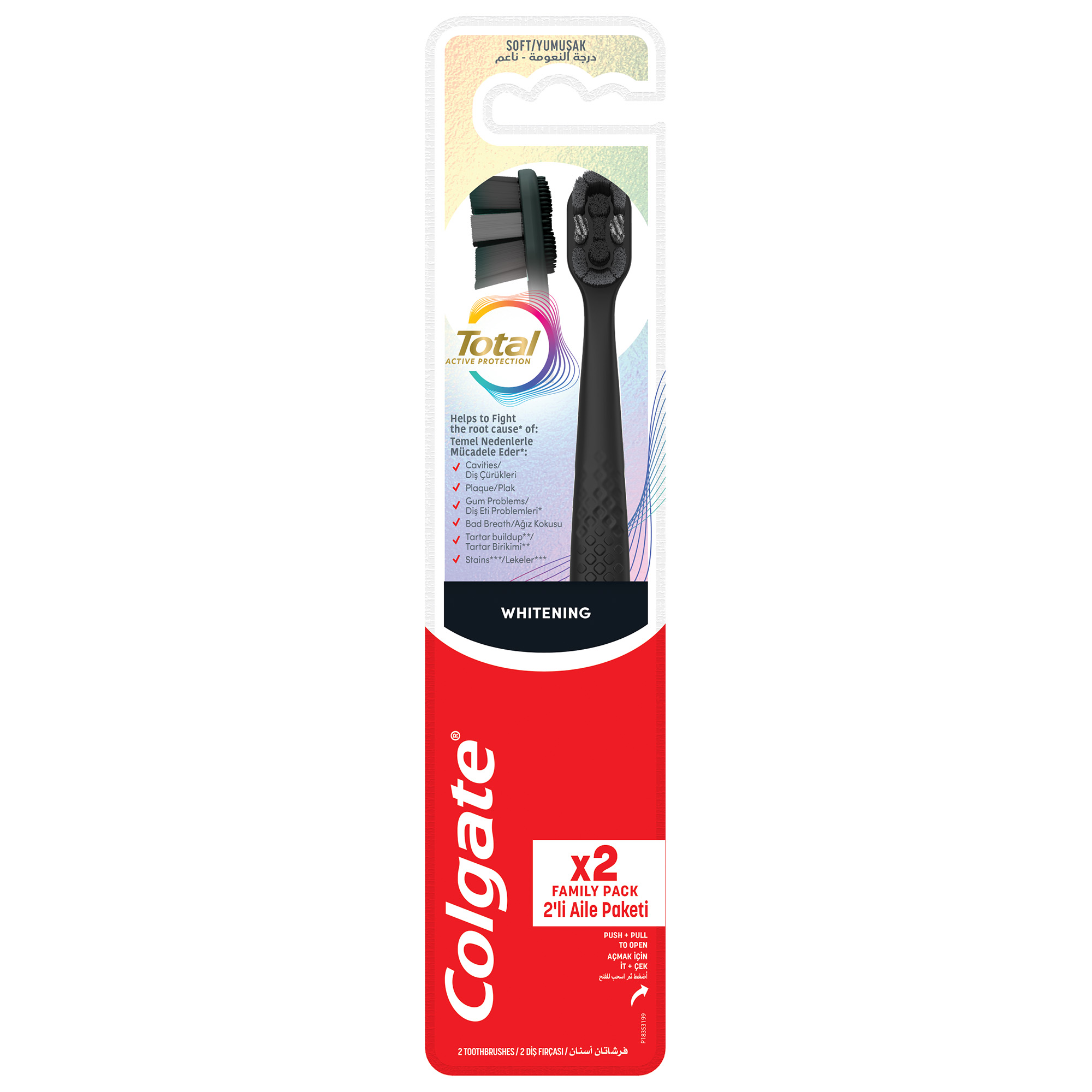1. Brush Properly Twice a Day
Learning how to strengthen teeth starts with proper daily brushing. The ADA recommends brushing twice a day with a fluoride toothpaste to keep your teeth clean and strong.
A toothbrush removes germs and food particles from your teeth before they can contribute to enamel erosion. The ADA recommends using a soft-bristled toothbrush that is placed at a 45-degree angle along the edge of the gumline. At this angle, you can gently sweep plaque and leftover food particles away from the enamel surface. Move in a back-and-forth motion across two to three teeth at a time.
2. Floss Daily
The ADA recommends that patients also use floss to remove food debris and plaque from in between teeth. Start with a strip of floss about 18 inches long. Wind the string around the middle fingers on each of your hands and pinch together with your thumbs. You'll want to keep 1 to 2 inches of floss between both of your hands. Then, you can gently guide the floss into each crevice in between the touching teeth. After you guide the floss into the space, gently use a C-shaped motion to wipe against the enamel surface.
Various flossing devices, including interproximal brushes and interdental aids, are also available for those who struggle to hold and maneuver string floss.
3. Use Fluoride Toothpaste and Mouthrinse
Fluoride is a mineral that occurs naturally in many water sources, explains the ADA. It's often added to city water supplies and used in oral care products, too. Fluoride toothpastes and mouthrinses are effective in strengthening teeth and preventing dental decay.
The ADA also recommends making sure your toothpaste is fluoridated. After you wake up in the morning and immediately before you go to bed are the best times to brush and apply fluoride.
4. Eat a Balanced Diet
The ADA encourages patients to eat a tooth-friendly, balanced diet, limiting sugar intake. While sugars are necessary for proper body functions, they also feed the bacteria in the mouth, resulting in acid production. This acid production is responsible for erosion and tooth weakening.
Choose foods such as whole grains, fruit, vegetables, lean proteins and low-fat dairy options for general oral health. The ADA also lists several foods that are among the most damaging to teeth:
- Acidic citrus foods
- Sugary coffee drinks
- Sticky, hard candies or dried fruit
- Crunchy foods that retain plaque
- Sodas and sports drinks
The ADA recommends drinking plenty of water throughout the day, too, not only to stay hydrated, but to rinse residual food debris and acids from the surface of the enamel. Saliva is also critical to helping you wash away food particles and acids from your mouth. Your mouth actually releases less saliva during snacking compared with when you eat a meal, which is why the ADA recommends limiting your snacking.
5. Keep Routine Dental Visits
Visiting a dental professional for regular evaluations will help you control enamel erosion, as they will be able to diagnose the issue and provide treatment recommendations. Your dental professional is ready to answer your questions, educate you on the best steps to keep your mouth healthy and make recommendations for your overall lifelong oral health. By knowing how to strengthen teeth, you can prevent enamel erosion and other dental problems.
This article is intended to promote understanding of and knowledge about general oral health topics. It is not intended to be a substitute for professional advice, diagnosis or treatment. Always seek the advice of your dentist or other qualified healthcare provider with any questions you may have regarding a medical condition or treatment.






.jpg)




